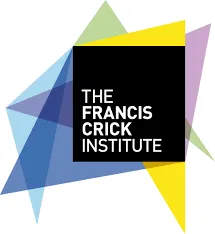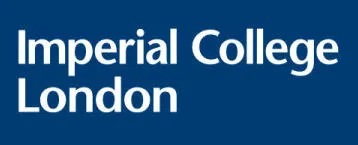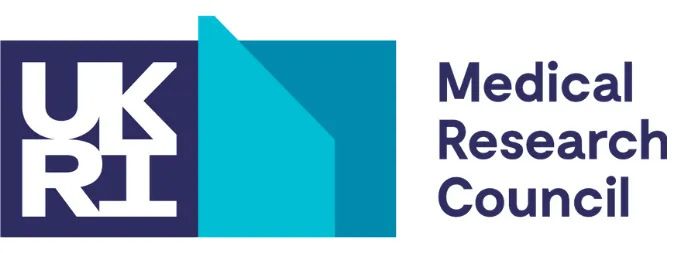The Francis Crick Institute, which is Europe’s largest biomedical research institute, was created through partnership with three leading London universities (King’s, Imperial College, UCL) and three medical research funders (MRC, CRUK, Wellcome).
The vision is for an institute that: supports outstanding discovery research across boundaries and at scale, with close university connections to strengthen clinical research and impact; develops links between biomedical research and the physical sciences, engineering and informatics.
The Crick is now home to 1500 staff and students that form over 120 research groups. Partner university staff lead a third of these groups. Research connections are developed through short and long-term attachments, joint appointments, and joint grant awards. World-class technology platforms at the Crick complement the facilities run by the universities and many collaborations are based around these.
The Crick and its university partners have established a highly regarded PhD programme that has enabled researchers from the 4 institutes to develop relationships whilst supervising students, which has often led to applications for attachment and joint grant funding. The programme welcomes 50 students per year registered across the 3 universities, including 5 doctoral clinical fellows who follow a condensed version of the programme.
The partnership between King's and the Crick has also led to the development of notable spin-outs and ambitious, large-scale research projects, such as GammaDelta Therapeutics - a pioneering biotechnology company focused on exploiting the unique properties of Gamma Delta T cells for immunotherapy - and the MAGIC consortium, a new initiative which has brought 15 international partners together to work towards transforming the treatment landscape for muscular dystrophies.

Themes
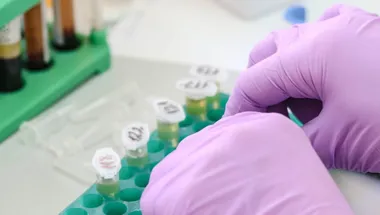
Research at the Crick
The Crick is home to over 120 research groups, 16 of which are led by King's PIs. Research connections are developed through joint appointments, joint grant awards, short and long-term attachments, shared supervision of PhD students, and via membership of the Crick's internal interest groups.
Staff Attachments
The following King's PIs have seconded to the Crick or established a satellite group there.
- Dr Patricia Barral
- Barral Lab - Immune Reponses to Lipids Laboratory
- Dr Jeremy Carlton
- Satellite Host Lab - Way Lab - Cellular Signalling and Cytoskeletal Function Laboratory
- Dr Marika Charalambous
- Charalambous Lab - Pregnancy Physiology Laboratory
- Dr Kim Jonas
- Hanyaloglu and Jonas Lab - Single Molecule GPCR Laboratory
- Professor Michele Mishto
- Mishto Lab - Molecular Immunology Laboratory
- Dr Andrea Serio
- Serio Lab - Neural Circuit Bioengineering and Disease Modelling Laboratory
- Professor Benedikt Berninger
- Berninger Lab - Engineering Neurogenesis Via In Vivo Lineage Reprogramming Laboratory
- Professor Paula Booth
- Booth Lab - Membrane Protein Folding Laboratory
- Professor Sergi Garcia-Manyes
- Garcia-Manyes Lab - Single Cell Mechanobiology Laboratory
- Professor Corinne Houart
- Professor Snezhana Oliferenko
- Satellite Host Lab - Uhlmann Lab - Chromosome Segregation Laboratory
- Professor Jody Rosenblatt
- Rosenblatt Lab - Epithelial Cell Extrusion Laboratory
Joint Physical Sciences Group Leaders
The following King's PIs hold a joint position as a Crick Physical Sciences Group Leader. Crick Physical Sciences Group Leaders are jointly appointed by the Crick and its partner universities. These staff work across areas of physical, engineering and information sciences relevant to biomedicine.
- Dr Katie Bentley
- Bentley Lab - Cellular Adaptive Behaviour Laboratory
- Dr Alberto Elosegui-Artola
- Elosegui-Artola Lab - Cell and Tissue Mechanobiology Laboratory
- Dr Jeannine Hess
- Hess Lab - Biological Inorganic Chemistry Laboratory
- Dr Charlie McTernan
- McTernan Lab - Artificial Molecular Machinery Laboratory
Joint Clinician Scientist Group Leaders
1 King's PI holds a joint position as a Clinician Scientist Group Leader. Clinician Scientist Group Leaders are jointly appointed by King's and the Crick. The scheme invites clinician scientists to join the Crick's faculty to establish a research programme whilst continuing with their clinical practice.
Joint Appointments
Several senior researchers hold joint appointments at King's and the Crick.
Activities

Crick University Staff Attachment Programme
Every January, researchers from the partner universities are invited to apply for an attachment to the Crick. The duration and scale of attachments that can be undertaken is flexible. Researchers can choose to relocate their whole research group to the Crick for up to 6 years, relocate part of their group there for a shorter period, or undertake a sabbatical there. Attachments can be proposed for any research area within the Crick strategy. Proposals that clearly illustrate how the attachment would benefit both institutes are the most likely to be selected. There are currently 17 King’s research groups based at the Crick, each benefitting from broader scientific collaborations and access to the institute's state of the art science technology platforms and facilities.
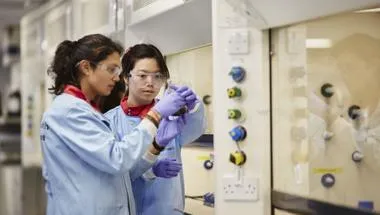
Physical Sciences Group Leader Recruitment Scheme
Physical Sciences Group Leaders are jointly appointed by King's and the Crick. The scheme is aimed at early career researchers to help build both King’s and the Crick’s communities of interdisciplinary researchers working in physical sciences and applying their research to biomedicine. These staff are employed by King's, but spend the first 6 years of their employment at the Crick before transferring to their university. The salary costs of the PI and their group are covered by the Crick for the initial 6 year period. King's has secured 4 appointments through this scheme to date, Dr Katie Bentley, Dr Alberto Elosegui-Artola, Dr Jeannine Hess, and Dr Charlie McTernan, all of whom are based in the Faculty of Natural, Mathematical and Engineering Sciences. Please follow the links below to view their lab profiles.

Clinician Scientist Group Leader Recruitment Scheme
Clinician Scientist Group Leaders are jointly appointed by King's and the Crick. The scheme invites clinician scientists to join the Crick's faculty to establish a research programme whilst continuing with their clinical practice. These staff are employed by King's, but spend up to 12 years at the Crick, an initial 6, and a further 6 subject to review. The salary costs of the PI and their group are covered by the Crick for the duration of the contract. King's has secured 1 appointment through this scheme to date, Dr Foad Rouhani, who is based in the School of Immunology and Microbial Sciences, Faculty of Life Sciences and Medicine. Please follow the link below to view his lab profile.

Crick Interest Groups
Every January, researchers from the partner universities are invited to apply to become an associate member of one of the Crick's internal interest groups. The Crick interest groups were developed to bring together scientists working on diverse biological systems, with many different complementary sets of expertise, to understand how these processes are regulated in health, and how their breakdown can result in diverse diseases. The aim of the interest groups is to enhance scientific discussion by strengthening existing interactions and promoting new links within and across the different interest groups. Each interest group runs two seminar series: external seminars presented by speakers from outside the Crick, which are open to external attendees; internal seminars presented by speakers from inside the Crick, often discussing unpublished work, which are open to Crick colleagues and associate interest group members from our partner universities.

Crick University Partners Networking Fund
This funding scheme was established to encourage academic staff, technical staff, and students from the Crick and its 3 partner universities to develop new relationships and collaborations. There are now two funding streams available, applicants can apply for awards of up to £4000 or £10,000 depending on the focus of the application. Awards of Up to £4000 To support events aimed at either developing new relationships or sustaining existing ones within the partnership e.g. establishment of a new network or seminar series, hosting a workshop. Awards of up to £10,000 To support events that focus on strategically important thematic areas, particularly those prioritised by the Crick and its university partners. Please see examples below: Engineering Human Biology and Physiology Developmental Neurobiology Advanced AI and Data Science Clinical Research Two calls will be run per year. Applications will be reviewed by the Networking Fund Committee which features representation from each of the partners.

Crick University Partners Translation Fund
The Crick launched a new funding scheme in autumn 2023. The scheme invited proposals for collaborative translational projects that cross disciplinary boundaries, particularly at the clinical and physical sciences interfaces, that may have the potential to lead to technologies and applications that would have a positive impact on human health. The Crick intend to launch 2 calls, the first is ongoing, the second is expected to be launched within the next year. The scheme will support projects that range from 6 months to 3 years in length, with funding for up to 2 full-time posts. The lead applicant can be a researcher from the Crick or one of its university partners.
News
Cancer Research UK City of London Radiation Research Centre of Excellence looks to the future with £18 million funding
The Cancer Research UK City of London Radiation Research Centre of Excellence has today set out its future strategic priorities. It has received renewed...
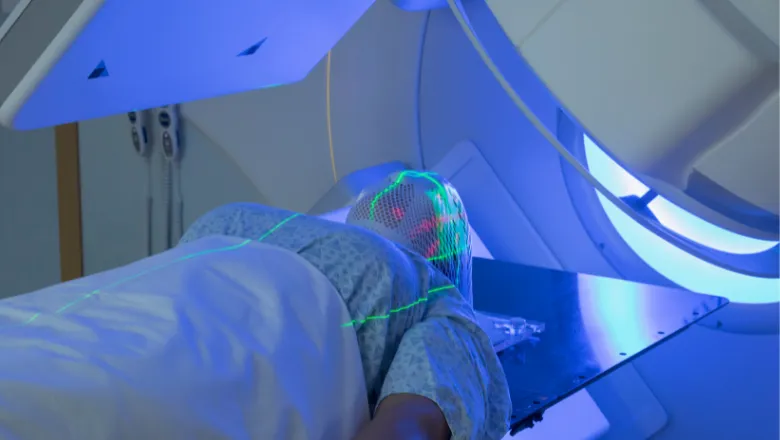
Professor Snezhana Oliferenko elected to EMBO Membership
In EMBO’s 60th anniversary year, 100 new Members and 20 Associate Members join the EMBO community
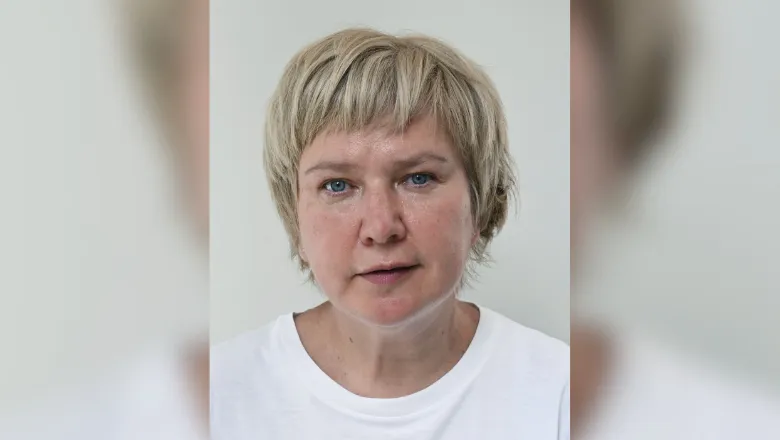
Immune cell helps predict skin cancer patients chances of responding to treatment
A type of immune cell can help predict which patients may benefit most from cancer immunotherapies, researchers from King’s College London, Guy’s and St...
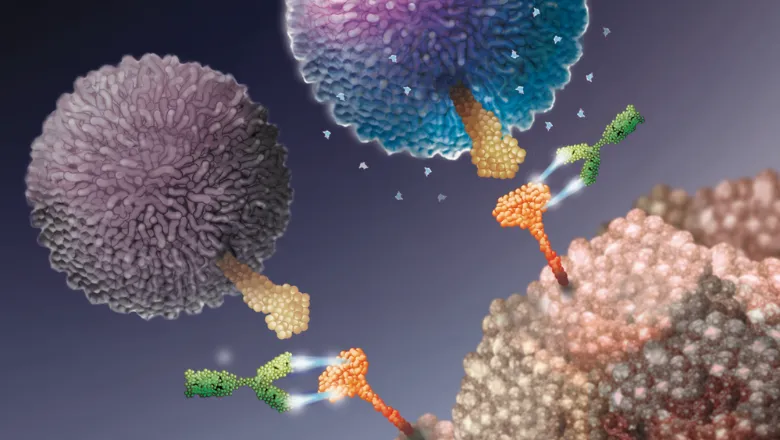
Fiona Roberts appointed Vice President (People & Talent)/Chief People Officer
Fiona Roberts will join King’s in January 2024 from the Francis Crick Institute
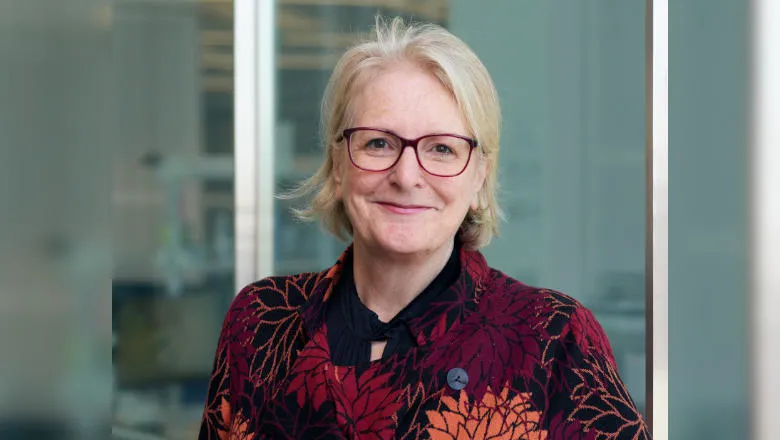
Crick first for KHP Surgeon
KHP speaks to Mr Foad Rouhani, the first surgeon to secure a Group Leader position at the world-leading Francis Crick Institute.
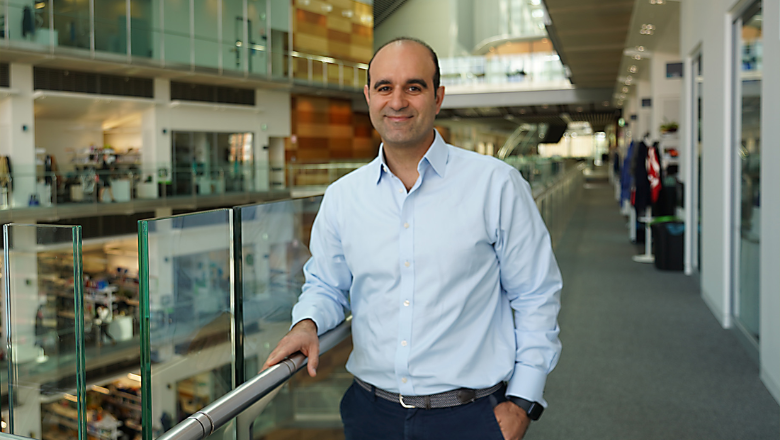
Events

Machine learning to detect the missing genetic drivers in individual cancer patients
Seminar with Professor Francesca Ciccarelli, The Crick Institute, Cancer Systems Biology laboratory
Please note: this event has passed.

The Miz-ing link between MYC, germinal center maintenance and exit
Speaker: Dr Dinis Calado, Immunity & Cancer Laboratory, Crick Institute
Please note: this event has passed.
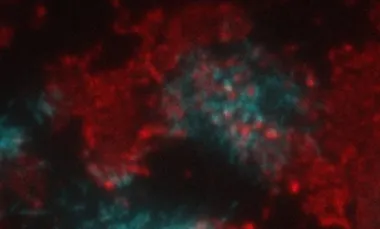
The mechanics and wiring of B cell immunity
Seminar with Dr Pavel Tolar, The Francis Crick Institute
Please note: this event has passed.
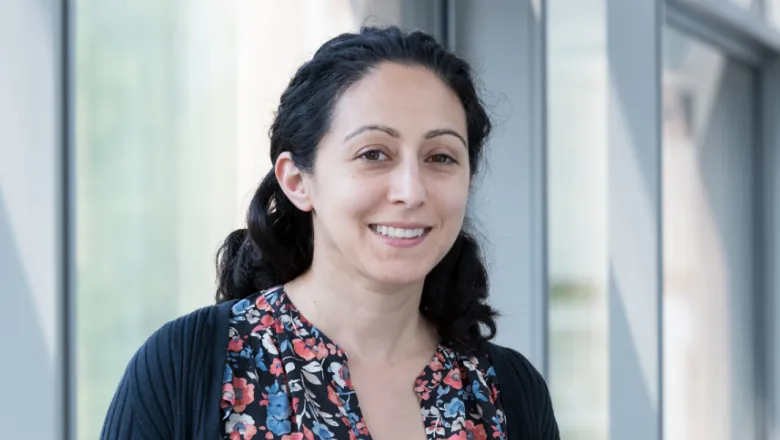
Using genome editing and single cell approaches to study early lineage specification in human embryos
Seminar with Dr Kathy Niakan, Francis Crick Institute
Please note: this event has passed.

Epigenetics and intratumour functional heterogeneity
Speaker: Dr Paola Scaffidi, Crick Institute
Please note: this event has passed.
Study and Training

Crick PhD Programme
The Crick PhD programme was established by the Crick and its three university partners in 2014. It is a 4-year full-time programme led by the Crick, though students are registered at one of the partner universities, with the choice of university guided by best scientific best. The Crick recruit approximately 50 students per year, maintaining a steady state of 200 students registered across the 4 years. From September 2024, there will be approximately 60 Crick PhD students registered at King's.
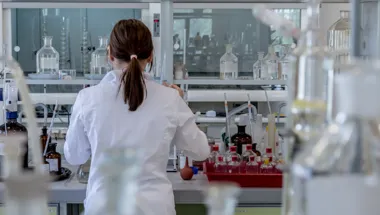
Crick Doctoral Clinical Fellows
Since 2019, the Crick have recruited for approximately 5 doctoral clinical fellows per year. The Crick encourage applications from talented clinicians who are passionate about research, have a strong academic track record, and believe they have the potential to pursue a career as an academic clinician. Doctoral clinical fellows follow the Crick PhD programme for 3 years rather than 4, and are registered at one of the partner universities. To date, 5 doctoral clinical fellows have registered at King's, with a sixth due to enrol on the Crick PhD programme in September. Please follow the links below to hear from one of our past fellows and view a current fellow's research profile.

Crick Sandwich Student Programme
The Crick invite undergraduate students in their second or third year, to join one of the Crick's research groups or science technology platforms for 12 months, to work on a defined research project. During the year, students will attend internal and external seminars, and take part in scientific and professional development training. Towards the end of the year, they will prepare to present their work at the annual Crick Sandwich Student Symposium. To be eligible to apply, students must be registered at a UK university, and studying for an undergraduate degree in a relevant discipline. For further information, please follow the links below.
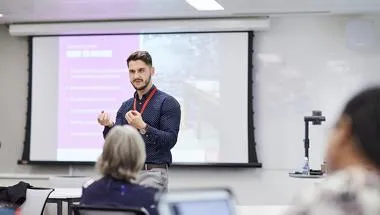
Crick Postdoctoral Training Programme at King's
The Crick Postdoctoral Training Programme at King's programme was established in 2018 to provide an opportunity for Crick postdoctoral researchers to obtain teaching experience in a university setting. A call is launched once annually, successful applicants follow the programme for 1 year, in which they complete training courses run by King's Academy, and then undertake teaching duties within Schools/Departments based in the science/health faculties. On average, 10 postdoctoral researchers follow the programme each year. A number of previous trainees have sought professional recognition of the teaching they have undertaken at King's through the HEA (Higher Education Academy), whilst others have secured paid teaching roles. For further information, please follow the link below, and see tabs marked GTA Development Programme and HEA Recognition.
Themes

Research at the Crick
The Crick is home to over 120 research groups, 16 of which are led by King's PIs. Research connections are developed through joint appointments, joint grant awards, short and long-term attachments, shared supervision of PhD students, and via membership of the Crick's internal interest groups.
Staff Attachments
The following King's PIs have seconded to the Crick or established a satellite group there.
- Dr Patricia Barral
- Barral Lab - Immune Reponses to Lipids Laboratory
- Dr Jeremy Carlton
- Satellite Host Lab - Way Lab - Cellular Signalling and Cytoskeletal Function Laboratory
- Dr Marika Charalambous
- Charalambous Lab - Pregnancy Physiology Laboratory
- Dr Kim Jonas
- Hanyaloglu and Jonas Lab - Single Molecule GPCR Laboratory
- Professor Michele Mishto
- Mishto Lab - Molecular Immunology Laboratory
- Dr Andrea Serio
- Serio Lab - Neural Circuit Bioengineering and Disease Modelling Laboratory
- Professor Benedikt Berninger
- Berninger Lab - Engineering Neurogenesis Via In Vivo Lineage Reprogramming Laboratory
- Professor Paula Booth
- Booth Lab - Membrane Protein Folding Laboratory
- Professor Sergi Garcia-Manyes
- Garcia-Manyes Lab - Single Cell Mechanobiology Laboratory
- Professor Corinne Houart
- Professor Snezhana Oliferenko
- Satellite Host Lab - Uhlmann Lab - Chromosome Segregation Laboratory
- Professor Jody Rosenblatt
- Rosenblatt Lab - Epithelial Cell Extrusion Laboratory
Joint Physical Sciences Group Leaders
The following King's PIs hold a joint position as a Crick Physical Sciences Group Leader. Crick Physical Sciences Group Leaders are jointly appointed by the Crick and its partner universities. These staff work across areas of physical, engineering and information sciences relevant to biomedicine.
- Dr Katie Bentley
- Bentley Lab - Cellular Adaptive Behaviour Laboratory
- Dr Alberto Elosegui-Artola
- Elosegui-Artola Lab - Cell and Tissue Mechanobiology Laboratory
- Dr Jeannine Hess
- Hess Lab - Biological Inorganic Chemistry Laboratory
- Dr Charlie McTernan
- McTernan Lab - Artificial Molecular Machinery Laboratory
Joint Clinician Scientist Group Leaders
1 King's PI holds a joint position as a Clinician Scientist Group Leader. Clinician Scientist Group Leaders are jointly appointed by King's and the Crick. The scheme invites clinician scientists to join the Crick's faculty to establish a research programme whilst continuing with their clinical practice.
Joint Appointments
Several senior researchers hold joint appointments at King's and the Crick.
Activities

Crick University Staff Attachment Programme
Every January, researchers from the partner universities are invited to apply for an attachment to the Crick. The duration and scale of attachments that can be undertaken is flexible. Researchers can choose to relocate their whole research group to the Crick for up to 6 years, relocate part of their group there for a shorter period, or undertake a sabbatical there. Attachments can be proposed for any research area within the Crick strategy. Proposals that clearly illustrate how the attachment would benefit both institutes are the most likely to be selected. There are currently 17 King’s research groups based at the Crick, each benefitting from broader scientific collaborations and access to the institute's state of the art science technology platforms and facilities.

Physical Sciences Group Leader Recruitment Scheme
Physical Sciences Group Leaders are jointly appointed by King's and the Crick. The scheme is aimed at early career researchers to help build both King’s and the Crick’s communities of interdisciplinary researchers working in physical sciences and applying their research to biomedicine. These staff are employed by King's, but spend the first 6 years of their employment at the Crick before transferring to their university. The salary costs of the PI and their group are covered by the Crick for the initial 6 year period. King's has secured 4 appointments through this scheme to date, Dr Katie Bentley, Dr Alberto Elosegui-Artola, Dr Jeannine Hess, and Dr Charlie McTernan, all of whom are based in the Faculty of Natural, Mathematical and Engineering Sciences. Please follow the links below to view their lab profiles.

Clinician Scientist Group Leader Recruitment Scheme
Clinician Scientist Group Leaders are jointly appointed by King's and the Crick. The scheme invites clinician scientists to join the Crick's faculty to establish a research programme whilst continuing with their clinical practice. These staff are employed by King's, but spend up to 12 years at the Crick, an initial 6, and a further 6 subject to review. The salary costs of the PI and their group are covered by the Crick for the duration of the contract. King's has secured 1 appointment through this scheme to date, Dr Foad Rouhani, who is based in the School of Immunology and Microbial Sciences, Faculty of Life Sciences and Medicine. Please follow the link below to view his lab profile.

Crick Interest Groups
Every January, researchers from the partner universities are invited to apply to become an associate member of one of the Crick's internal interest groups. The Crick interest groups were developed to bring together scientists working on diverse biological systems, with many different complementary sets of expertise, to understand how these processes are regulated in health, and how their breakdown can result in diverse diseases. The aim of the interest groups is to enhance scientific discussion by strengthening existing interactions and promoting new links within and across the different interest groups. Each interest group runs two seminar series: external seminars presented by speakers from outside the Crick, which are open to external attendees; internal seminars presented by speakers from inside the Crick, often discussing unpublished work, which are open to Crick colleagues and associate interest group members from our partner universities.

Crick University Partners Networking Fund
This funding scheme was established to encourage academic staff, technical staff, and students from the Crick and its 3 partner universities to develop new relationships and collaborations. There are now two funding streams available, applicants can apply for awards of up to £4000 or £10,000 depending on the focus of the application. Awards of Up to £4000 To support events aimed at either developing new relationships or sustaining existing ones within the partnership e.g. establishment of a new network or seminar series, hosting a workshop. Awards of up to £10,000 To support events that focus on strategically important thematic areas, particularly those prioritised by the Crick and its university partners. Please see examples below: Engineering Human Biology and Physiology Developmental Neurobiology Advanced AI and Data Science Clinical Research Two calls will be run per year. Applications will be reviewed by the Networking Fund Committee which features representation from each of the partners.

Crick University Partners Translation Fund
The Crick launched a new funding scheme in autumn 2023. The scheme invited proposals for collaborative translational projects that cross disciplinary boundaries, particularly at the clinical and physical sciences interfaces, that may have the potential to lead to technologies and applications that would have a positive impact on human health. The Crick intend to launch 2 calls, the first is ongoing, the second is expected to be launched within the next year. The scheme will support projects that range from 6 months to 3 years in length, with funding for up to 2 full-time posts. The lead applicant can be a researcher from the Crick or one of its university partners.
News
Cancer Research UK City of London Radiation Research Centre of Excellence looks to the future with £18 million funding
The Cancer Research UK City of London Radiation Research Centre of Excellence has today set out its future strategic priorities. It has received renewed...

Professor Snezhana Oliferenko elected to EMBO Membership
In EMBO’s 60th anniversary year, 100 new Members and 20 Associate Members join the EMBO community

Immune cell helps predict skin cancer patients chances of responding to treatment
A type of immune cell can help predict which patients may benefit most from cancer immunotherapies, researchers from King’s College London, Guy’s and St...

Fiona Roberts appointed Vice President (People & Talent)/Chief People Officer
Fiona Roberts will join King’s in January 2024 from the Francis Crick Institute

Crick first for KHP Surgeon
KHP speaks to Mr Foad Rouhani, the first surgeon to secure a Group Leader position at the world-leading Francis Crick Institute.

Events

Machine learning to detect the missing genetic drivers in individual cancer patients
Seminar with Professor Francesca Ciccarelli, The Crick Institute, Cancer Systems Biology laboratory
Please note: this event has passed.

The Miz-ing link between MYC, germinal center maintenance and exit
Speaker: Dr Dinis Calado, Immunity & Cancer Laboratory, Crick Institute
Please note: this event has passed.

The mechanics and wiring of B cell immunity
Seminar with Dr Pavel Tolar, The Francis Crick Institute
Please note: this event has passed.

Using genome editing and single cell approaches to study early lineage specification in human embryos
Seminar with Dr Kathy Niakan, Francis Crick Institute
Please note: this event has passed.

Epigenetics and intratumour functional heterogeneity
Speaker: Dr Paola Scaffidi, Crick Institute
Please note: this event has passed.
Study and Training

Crick PhD Programme
The Crick PhD programme was established by the Crick and its three university partners in 2014. It is a 4-year full-time programme led by the Crick, though students are registered at one of the partner universities, with the choice of university guided by best scientific best. The Crick recruit approximately 50 students per year, maintaining a steady state of 200 students registered across the 4 years. From September 2024, there will be approximately 60 Crick PhD students registered at King's.

Crick Doctoral Clinical Fellows
Since 2019, the Crick have recruited for approximately 5 doctoral clinical fellows per year. The Crick encourage applications from talented clinicians who are passionate about research, have a strong academic track record, and believe they have the potential to pursue a career as an academic clinician. Doctoral clinical fellows follow the Crick PhD programme for 3 years rather than 4, and are registered at one of the partner universities. To date, 5 doctoral clinical fellows have registered at King's, with a sixth due to enrol on the Crick PhD programme in September. Please follow the links below to hear from one of our past fellows and view a current fellow's research profile.

Crick Sandwich Student Programme
The Crick invite undergraduate students in their second or third year, to join one of the Crick's research groups or science technology platforms for 12 months, to work on a defined research project. During the year, students will attend internal and external seminars, and take part in scientific and professional development training. Towards the end of the year, they will prepare to present their work at the annual Crick Sandwich Student Symposium. To be eligible to apply, students must be registered at a UK university, and studying for an undergraduate degree in a relevant discipline. For further information, please follow the links below.

Crick Postdoctoral Training Programme at King's
The Crick Postdoctoral Training Programme at King's programme was established in 2018 to provide an opportunity for Crick postdoctoral researchers to obtain teaching experience in a university setting. A call is launched once annually, successful applicants follow the programme for 1 year, in which they complete training courses run by King's Academy, and then undertake teaching duties within Schools/Departments based in the science/health faculties. On average, 10 postdoctoral researchers follow the programme each year. A number of previous trainees have sought professional recognition of the teaching they have undertaken at King's through the HEA (Higher Education Academy), whilst others have secured paid teaching roles. For further information, please follow the link below, and see tabs marked GTA Development Programme and HEA Recognition.

Contact us
The King's-Crick Partnership team can be reached at the following addresses:







